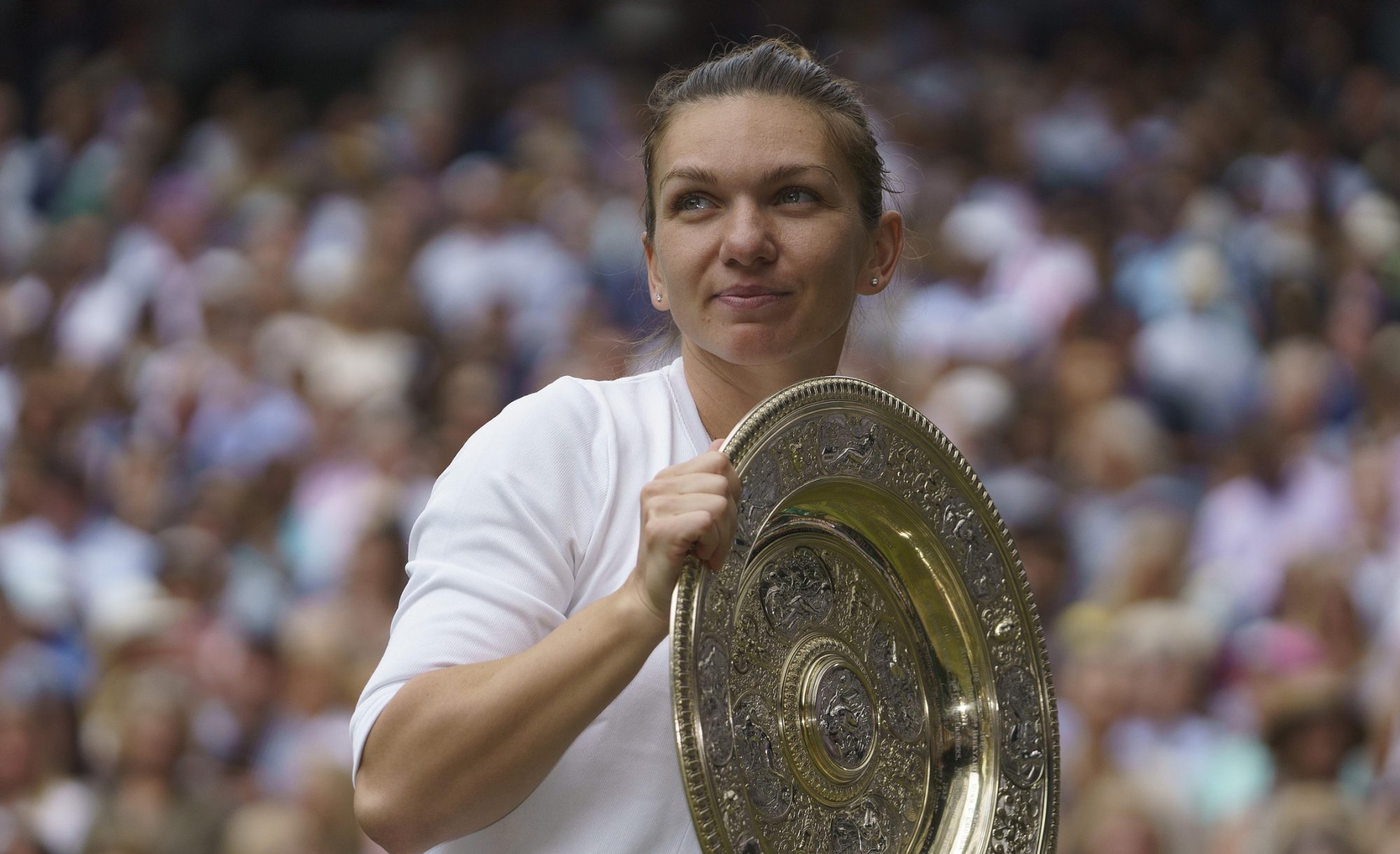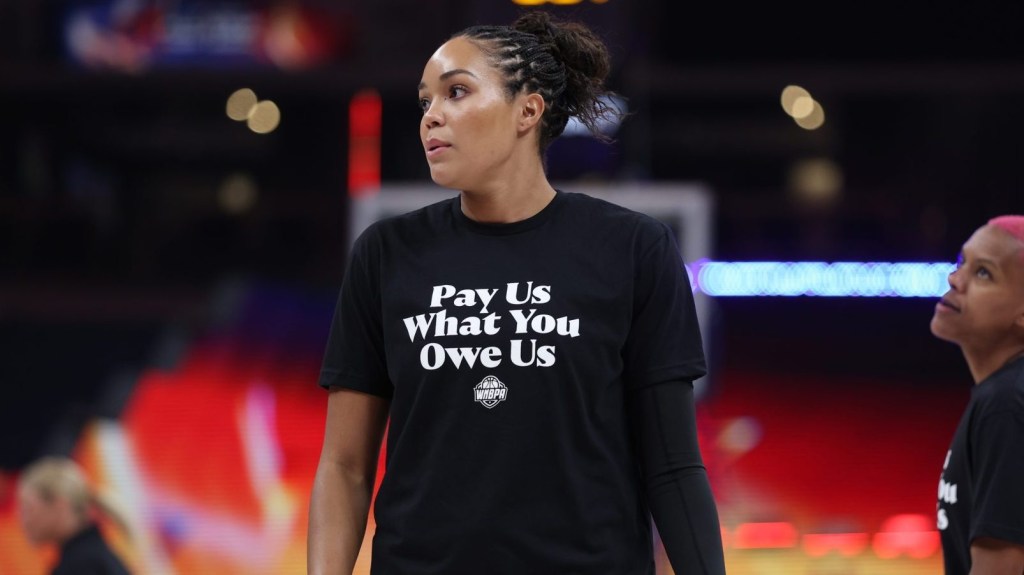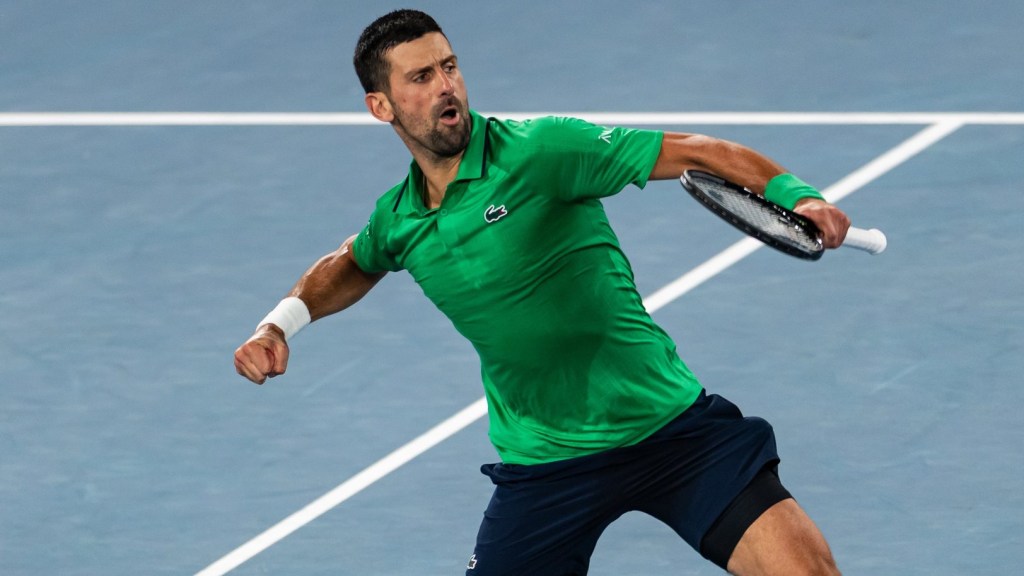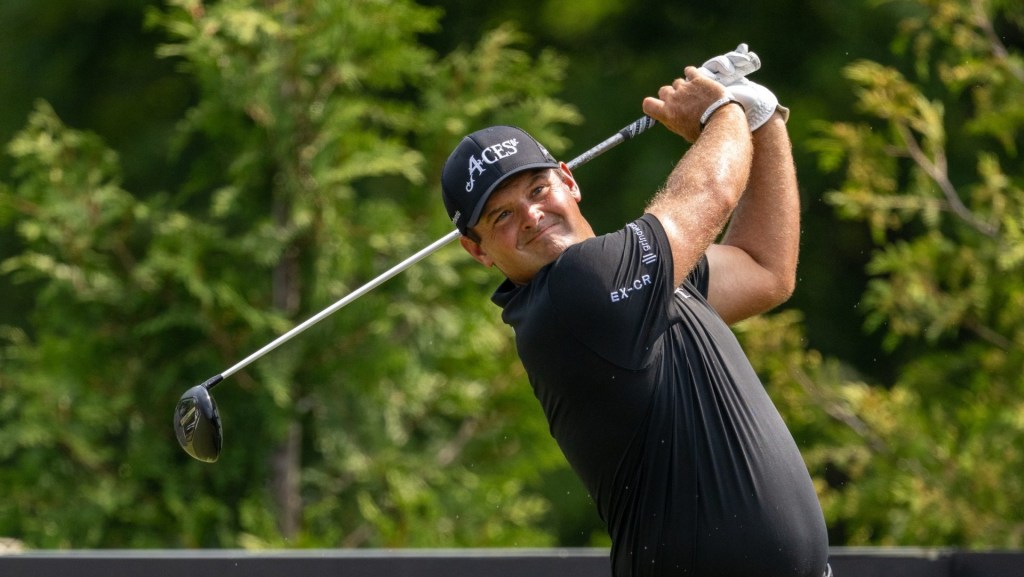Simona Halep figured she’d be exonerated when a tribunal finally ruled on her doping case.
“I was confident after the hearing because there were so many things that made no sense and that are not fair,” the two-time women’s tennis singles Grand Slam champion said in an exclusive interview with Front Office Sports.
But a tribunal, which issued Halep a four-year ban last week, basically disregarded all the evidence her attorney and the experts presented at a June hearing to explain why a drug — one banned since it has been shown to boost endurance — was found in her system.
“When I received the decision, I was in complete shock,” said Halep, a former world No. 1 player. “I could not believe that they suspended me for four years when we found the contamination and my blood was totally normal. They didn’t find anything bad in my blood. It’s crazy that they made this decision with everything [her legal team presented]. They judged me on scenarios. There is no proof. It’s just insane.”
Under the strict liability standard binding athletes, Halep anticipated some form of sanction, as athletes are held responsible for what enters their bodies, even if unintentional. If athletes can trace the source of a positive result, they can mitigate the consequences of doping.
Earlier this year, Halep’s legal team successfully identified the source of the positive result, as the substance (Roxadustat) was discovered in a nutritional supplement she had started taking at the recommendation of her physiotherapist at Mouratoglou Academy before she tested positive for the anti-anemia drug at the 2022 U.S. Open.
“It’s a violation, but we said the sanction should be very minimal,” said Howard Jacobs, Halep’s attorney.
The Romanian was hit with a provisional suspension by the International Tennis Integrity Agency (ITIA) last October and remained sidelined for nearly an entire year before the decision effectively added three more years to her ban. Jacobs said the punishment is, in effect, a lifetime ban since Halep will be 35 when the suspension expires in 2026.
“Mentally, it’s been a disaster for me because I wasn’t expecting something like this,” Halep said. “I’ve always been careful with what I put in my body, and I have never taken something without checking. So, it is a shock.”
The ITIA was supposed to convene the tribunal in February before the delayed hearing. As the weeks passed, the ITIA began to look beyond the positive urine test for Roxadustat from August 29, 2022.
Her biological passport — where athletes blood is collected and markers that could signal doping are analyzed — resulted in a second charge from the ITIA.
Of the 51 samples analyzed since August 2013, Halep’s sample from September 2022 was flagged. Jacobs argued the values seen in that sample are consistent with other samples that were not flagged.
In December, two of the three outside experts determined the biological passport data was “suspicious” — a determination that would not have led to a second charge from the ITIA for Halep.
Those experts likely would have known that the sample was from a tennis player since review data can include competition schedules. But they likely wouldn’t have known at the time it was Halep’s biological passport specifically since reviews are supposed to be anonymous.
“Then [the ITIA] provided additional information to the experts, including that this player had tested positive for Roxadustat at the end of August 2022, which was highly abnormal,” Jacobs said. “They’re all very involved in anti-doping. They already knew it was a tennis player from her competition schedule. They didn’t need to share her name, as it was widely known that Simona had tested positive for Roxadustat because her provisional suspension in October was well-publicized.”
Each of the three outside experts confirmed at the hearing that when told that the player had tested positive for Roxadustat, they immediately knew that the biological passport belonged to Simona Halep.
After learning her identity, two of the three experts changed their “suspicious” findings to “likely doping” earlier this year, according to findings released by the ITIA on Wednesday. Along with a third expert who initially ruled Halep was “likely doping.” The tribunal — which took the information from the three experts to level its decision — ”did express discomfort” that the two experts who changed their opinion knew it was Halep.
“The expert panel [was] adamant that their knowledge of the AAF [adverse analytical finding] did not affect their opinions at all,” the tribunal stated. “We accept that.”
Additionally, Jacobs pointed out, “the timeline of when [the expert panel] changed the opinion from ‘suspicious’ to ‘likely doping’ lines up pretty well with when we alerted the ITIA and tribunal that there was a contaminated supplement involved.”
In June’s hearing, Halep’s panel of experts presented evidence on the Keto MCT supplement that Halep used before her positive urine test:
- A lab that analyzed additional sealed
- A volunteer consumed the supplement as directed, and Roxadustat was identified in that person’s urine samples.
- A hair sample taken from Halep showed small traces of Roxadustat, but not in doses high enough that would have led to any performance-enhancing effects.
“It was really good to find out where [the Roxadustat] was coming from because it’s really tough when you don’t know what is happening,” Halep said.
Given that Halep had tested negative for Roxadustat on August 26, 2022, and then positive three days later, experts concluded that given the very small concentration levels of Roxadustat found in the August 29, 2022 urine sample could not have been caused by her taking a performance-enhancing dose of Roxadustat.
Halep also noted that knowing what she has since learned about Roxadustat, she would have avoided it — and not only because it was banned.
Halep said it would have exacerbated a thyroid issue she’d dealt with for years, and takes an approved medication. A European Medicines Agency study showed a decrease in thyroid function by those taking the drug, which is not approved for use in the U.S.
“There was no point for me to take this,” Halep said. “It’d work against me. It wouldn’t help me.”
Since the four-year ban was announced on Tuesday, Serena Williams posted, “8 is a better number,” in an apparent dig at Halep. Williams beat Williams the Wimbledon singles final in 2019, and Halep hired Williams’ former longtime coach, Patrick Mouratoglou, who leads the Mouratoglou Academy.
Halep said she had not seen the Williams post on X (formerly known as Twitter), but added she understand the reaction from those around the sport given the decision.
In a statement, Halep said she intends to take legal action against the supplement manufacturer. Jacobs declined to identify the name of the supplement or the manufacturer.
Jacobs is readying an appeal to the Court of Arbitration for Sport (CAS), which has the authority to overturn the ITIA tribunal’s decision or lessen the penalty. Jacobs has represented numerous athletes in front of CAS, including Maria Sharapova
Sharapova, one of several athletes from Russia and Eastern Europe caught using meldonium, saw her two-year ban reduced to 15 months by CAS in March 2016. Marin Cilic, a men’s pro tennis player who Jacobs represented, saw his original doping suspension of nine months reduced to four in 2013.
“There are a ton of those examples,” Jacobs said. “I think we have the facts and the science on our side.”
Jacobs hopes that CAS will rule before the Australian Open, which begins in the middle of January. Halep continues to train, although it’s mostly been off the court.
“Tennis is tough to focus on,” Halep said. “I need to stay healthy. It’s emotional [being on the tennis court]. When you are drained emotionally, you can get hurt physically. I am trying to protect myself, so I will keep going to the gym to stay in shape.”

















